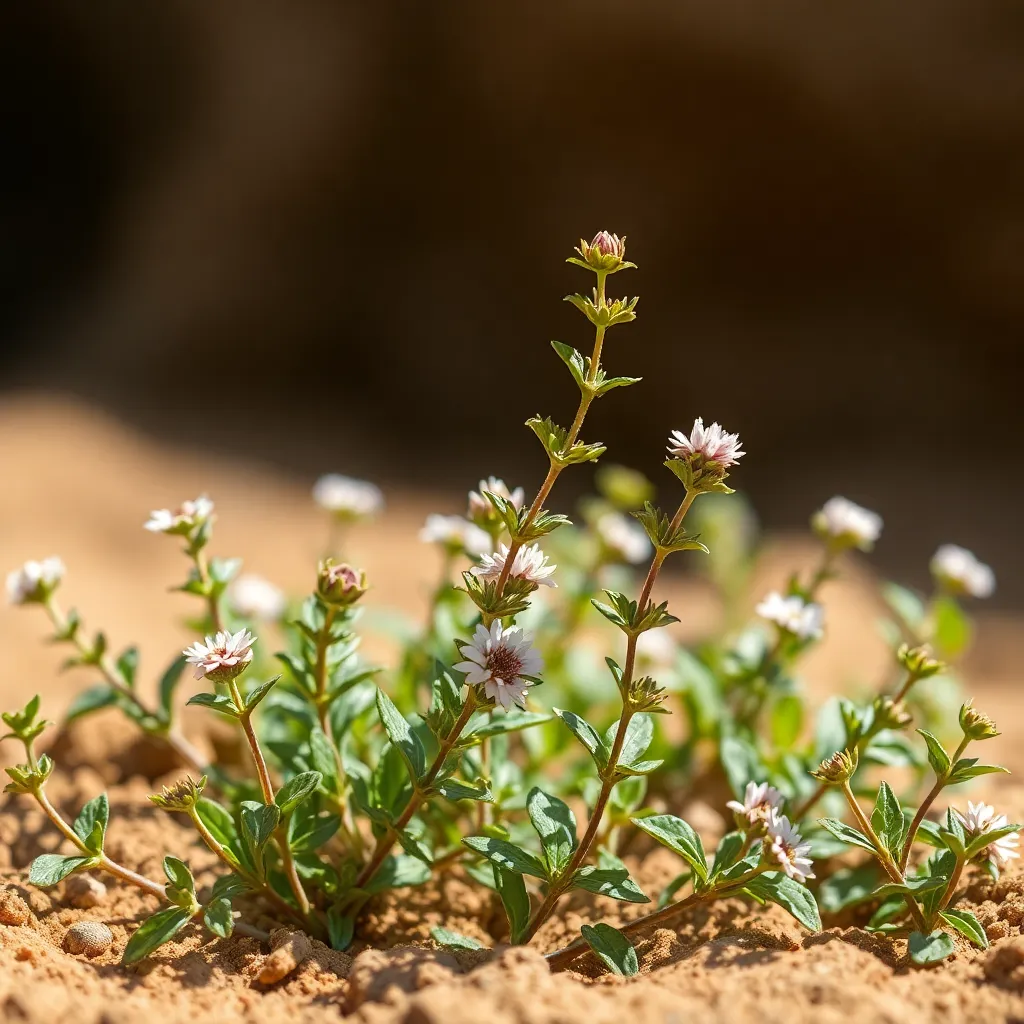The Healing Properties of Sacred Thyme in Egypt
I. Introduction
The ancient Egyptians were known for their deep understanding of the natural world and the healing properties of various plants. Among these, sacred thyme stands out as a significant herb with a rich historical context. Revered not only for its culinary uses but also for its medicinal properties, thyme has played a crucial role in the health practices of ancient Egyptian society.
This article aims to explore the healing properties of sacred thyme, its historical significance, and its cultural relevance in ancient Egypt. By delving into the various dimensions of this remarkable herb, we hope to shed light on its place within both ancient and modern healing practices.
II. Historical Context of Thyme in Ancient Egypt
Thyme, known in ancient Egypt for its aromatic qualities, was used extensively in medicine. Its application ranged from treating ailments to spiritual practices, highlighting its multifaceted role in ancient Egyptian culture.
A. Use of thyme in ancient Egyptian medicine
Thyme was utilized in various medicinal formulations, often applied as poultices or infusions. It was believed to possess antiseptic properties, making it valuable for treating wounds and infections.
B. References to thyme in ancient texts and tomb inscriptions
Thyme appears in several ancient texts, including the Ebers Papyrus, one of the oldest medical documents. Tomb inscriptions often depicted thyme as a symbol of health and protection for the deceased on their journey to the afterlife.
C. The role of thyme in religious and spiritual practices
In religious contexts, thyme was associated with purification rituals and offerings to the gods. Its aromatic nature was believed to attract divine favor and ward off evil spirits.
III. The Chemical Composition of Sacred Thyme
The healing properties of thyme can be attributed to its unique chemical composition, which includes several active compounds.
A. Key active compounds (e.g., thymol, carvacrol)
- Thymol: Known for its antiseptic and antifungal properties.
- Carvacrol: Exhibits antibacterial effects and is effective against a range of pathogens.
B. Nutritional benefits and properties
Thyme is rich in vitamins and minerals, including vitamin C, vitamin A, and iron, contributing to its overall health benefits.
C. Comparison with other herbs used in traditional Egyptian healing
While other herbs such as garlic and cumin were also significant in ancient Egyptian medicine, thyme’s unique combination of flavor and medicinal properties set it apart as a crucial herb in healing practices.
IV. Traditional Healing Practices Involving Thyme
In ancient Egypt, thyme was not only used in medicine but also in various traditional healing practices.
A. Herbal remedies and preparations using thyme
Thyme was commonly prepared as a tea or infusion to treat respiratory issues. It was also used in poultices for its soothing effects on wounds.
B. Thyme’s role in rituals and ceremonies
Thyme was often included in incense and offerings, believed to purify spaces and promote healing energies during rituals.
C. Case studies of traditional healers and their practices
Contemporary herbalists draw upon the wisdom of ancient Egyptian healers, using thyme in their practices. These healers often share insights into the methods and formulations passed down through generations.
V. Modern Scientific Research on Thyme’s Healing Properties
Recent research has begun to validate the traditional uses of thyme and its potential therapeutic applications.
A. Recent studies validating traditional uses
Studies have confirmed thyme’s antimicrobial and anti-inflammatory effects, supporting its use in treating various ailments.
B. Potential therapeutic applications (e.g., antimicrobial, anti-inflammatory)
Thyme shows promise in treating respiratory infections, digestive issues, and skin conditions due to its powerful compounds.
C. Interviews with contemporary herbalists and researchers
Experts emphasize the importance of integrating ancient wisdom with modern science to enhance our understanding of herbal medicine.
VI. Cultural Significance and Symbolism of Thyme
Thyme holds a prominent place in Egyptian folklore and mythology, symbolizing health and protection.
A. Thyme in Egyptian folklore and mythology
Legends often depict thyme as a gift from the gods, believed to bring blessings of health and prosperity.
B. The symbolism of thyme in healing and protection
In ancient practices, thyme was used as an amulet to protect individuals from illness and misfortune.
C. The global influence of Egyptian thyme practices
The use of thyme has transcended Egyptian culture, influencing herbal practices worldwide, particularly in Mediterranean and Middle Eastern traditions.
VII. Practical Applications of Sacred Thyme Today
Incorporating sacred thyme into modern health routines can offer various benefits.
A. How to incorporate thyme into daily health routines
- Use fresh or dried thyme in cooking for flavor and health benefits.
- Prepare thyme tea for soothing respiratory issues.
B. Recipes and remedies featuring thyme
Simple recipes include thyme-infused oils, teas, and herbal blends that can be easily made at home.
C. Safety considerations and potential side effects
While thyme is generally safe, excessive consumption may lead to digestive issues. Always consult with a healthcare provider when using herbs for medicinal purposes.
VIII. Conclusion
In summary, sacred thyme has played a vital role in the healing practices of ancient Egypt, with its properties rooted in both historical context and modern science. Its cultural significance and enduring legacy continue to influence contemporary wellness practices.
As we explore the healing properties of herbs like thyme, we recognize the relevance of ancient wisdom in today’s health landscape. We encourage further exploration and appreciation of herbal medicine, celebrating the gifts that nature offers for our well-being.




